Mike Hubbard finishes testimony in his own ethics trial
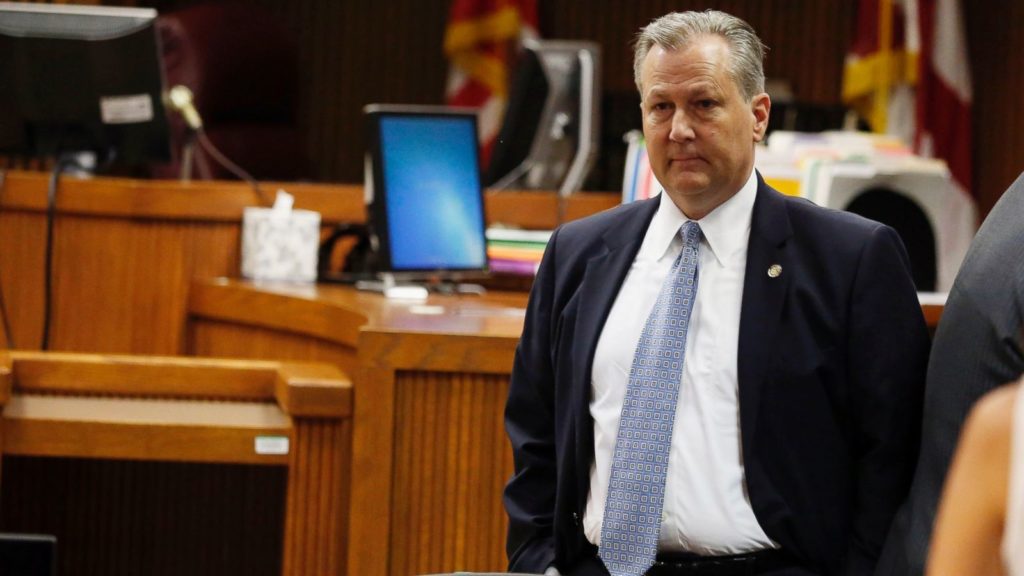
The Latest on the ethics trial of Alabama House Speaker Mike Hubbard (all times local): 10:30 a.m. Alabama House Speaker Mike Hubbard has finished testifying in his ethics trial. Prosecutor Matt Hart on Thursday morning showed jurors an email that Hubbard sent to a Publix lobbyist trying to arrange for company executives to meet with a drinking cup manufacturer in his district. The email was signed, “speaker of the house” and did not disclose that a related company was also paying Hubbard $10,000-a-month. Hubbard later explained it was an automatic signature generated by his email at his business, the Auburn Network. However, Hubbard’s defense took a stumble when he described the email as a request for advice to a longtime friend. Hubbard said the man recently died of an aneurysm. However, Hart noted the man was still alive. Hubbard admitted he must have confused him with someone else. ___ 5:24 a.m. Alabama House Speaker Mike Hubbard is returning to the witness stand for the third day in his ethics trial. A state prosecutor will resume his cross-examination of the Republican speaker Thursday morning. Prosecutor Matt Hart on Wednesday quizzed Hubbard on $2.3 million in contracts, party campaign business and investments his companies received. He also questioned Hubbard about an email he sent former Gov. Bob Riley, who is now a lobbyist, seeking employment help. Hubbard faces 23 felony ethics charges accusing him of using his political positions as Speaker and party chair to make money and solicit jobs and financial favors from lobbyists. Hubbard has maintained his innocence and said he took precautions to obey the state ethics law. Republished with permission of The Associated Press.
Mike Hubbard trial day 11: Hubbard returns to the witness stand
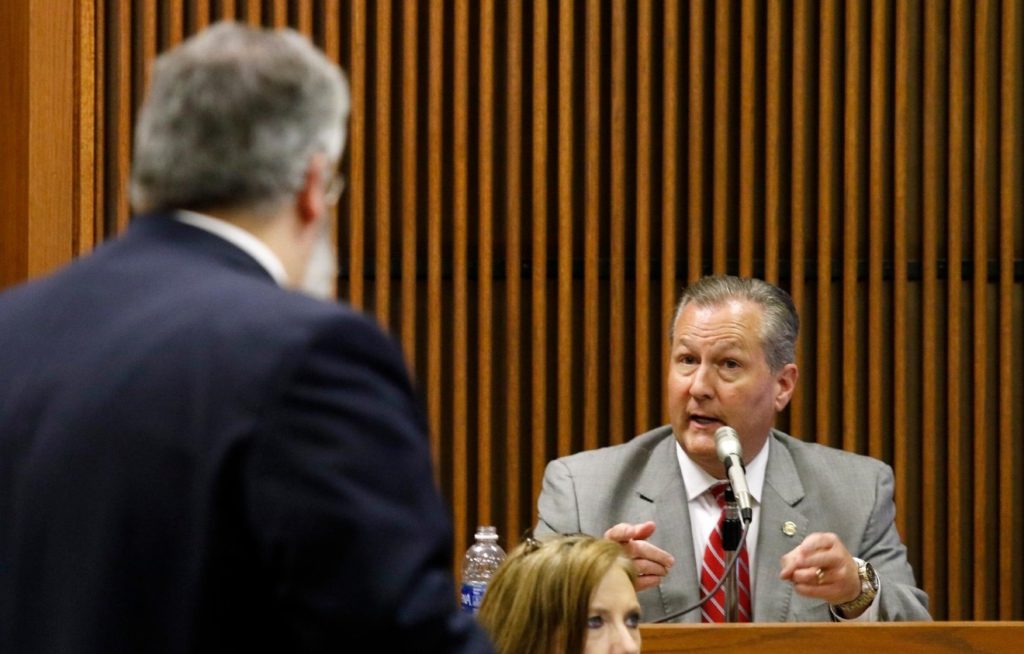
Alabama House Speaker Mike Hubbard continued his testimony on the witness stand Wednesday. There, he adamantly denied intentionally violating any laws, claiming he is “absolutely not” before the courtroom. The defense spent much of the day focused on Hubbard’s consulting work, allowing him the opportunity to explain why his actions were legal in his eyes. During this hourlong testimony before cross-examination, Hubbard often contradicted prior witnesses’ testimony. Before turning Hubbard over for cross-examination, the defense pointedly asked, “Did you ever intend to violate the law?” “Never,” Hubbard answered decisively. The defense went further, “Did you ever knowingly violate the law within these counts?” Hubbard repeated, “Never.” Hubbard was then turned over for cross-examination just after 3 p.m. where Deputy Attorney General Matt Hart questioned Hubbard about his relationship with former Alabama Governor, and current lobbyist, Bob Riley. Earlier Wednesday, Hubbard testified Riley was not only a close personal friend, but he was also like a father to him, which is why he went to the former governor about financial problems with his business. Hart clarified, “He’s a lobbyist, and you’re Speaker of the House.” Hubbard shot back, “He’s my friend.” To drive the point home, Hart referred to the former governor as ‘your friend, the lobbyist’ when speaking to Hubbard the remainder of the day. Repeatedly, Hubbard shot back “my friend, Bob Riley.” Hubbard said he did seek advice from Riley, “but not in my role as speaker.” Hubbard will take the stand again Thursday morning, where cross-examination will continue. He has testified a total of roughly five hours thus far. Hubbard was indicted in October 2013 on 23 felony ethics charges of using his political office for personal gain. If convicted, he faces a maximum penalty of two to 20 years imprisonment and fines of up to $30,000 for each count. He would be removed from office if convicted of any of the 23 charges. Hubbard has since maintained his innocence and continued to serve as Speaker of the Alabama House during the 2016 legislative session.
Mike Hubbard trial: Alabama House speaker continues testimony in own defense

The latest on the public corruption trial of House Speaker Mike Hubbard (all times local): 4:50 p.m. Alabama House Speaker Mike Hubbard squared off with a state prosecutor over consulting contracts and other money the Republican’s companies received. Hubbard and prosecutor Matt Hart exchanged testy remarks Wednesday during the first day of a contentious cross-examination at Hubbard’s ethics trial. Hart questioned Hubbard about $2.3 million his companies received and emails he sent former Gov. Bob Riley, now a lobbyist, seeking help finding a job. Hart referred to Riley as a lobbyist. Hubbard in his responses referenced Riley as “my friend.” Hubbard faces 23 felony ethics charges accusing him of using his political positions to obtain $2.3 million in work and investments for his companies. His defense has argued the transactions fall within exemptions for longstanding friendships and normal business dealings. He returns to the witness stand Thursday. ___ 4:00 p.m. Alabama House Speaker Mike Hubbard returned to the witness stand in his public corruption trial, denying accusations that he used his office to make money and help his business clients. Hubbard on Wednesday said he never knowingly violated the ethics law. Hubbard at several points contradicted testimony from prior witnesses. Hubbard said he had not seen language in a 2013 budget that could have benefited one of his clients until shortly before the House vote. He also denied asking a lobbyist for a $150,000 investment in his printing company. The Republican said calls to a patent office he made on behalf of another client, the owner of a drinking cup company, was because he was a constituent and employer in his district. The company was also paying Hubbard $10,000 a month. Hubbard said the company hired him because of his connections to college sports. ___ 3:35 a.m. Alabama House Speaker Mike Hubbard is testifying in his own defense at his ethics trial. Hubbard will return to the witness stand Wednesday afternoon as he offers jurors his explanation of contracts his companies received and emails he sent seeking work. Hubbard faces 23 felony ethics charges accusing him of using his political positions to obtain $2.3 million in work and investments for his companies. The Republican speaker testified Tuesday that he took precautions to obey the law and sought input from the director of the state ethics commission before accepting contracts. The speaker said he sought advice from friends after being laid off and he vented his financial stress in emails to former Gov. Bob Riley. Prosecutors will get a chance to question Hubbard later. Republished with permission of The Associated Press.
Speaker Mike Hubbard on ethics charges: I took pains to obey the law

Alabama House Speaker Mike Hubbard took the witness stand in his own defense at his ethics trial Tuesday, saying he took precautions to obey state law with contracts his companies received and made “not a cent” from campaign work steered to his printing company. For two weeks in the public corruption trial, some of the most direct prosecution evidence came from Hubbard himself as prosecutors showed jurors emails he sent lamenting his financial situation and appearing to repeatedly ask former Gov. Bob Riley, now a lobbyist, and others for assistance in help finding work. Hubbard, 54, on Tuesday attempted an explanation, saying he sought advice from longtime friends when he was laid off, including Riley, a man he considered a father figure. “It was stressful,” Hubbard said. “I poured out my soul in the emails. You never think the government is going to get your emails and put them out there on the Internet. I learned my lesson.” Hubbard said he “called a lot of folks I thought could give me good advice” after being laid off from a $130,000 job with a sports media company. Prosecutors are presenting the emails as evidence that Hubbard improperly sought jobs and financial favors from lobbyists such as Riley and other company officials who had business before the Alabama Legislature. Hubbard faces 23 felony ethics charges accusing him of using the power and prestige of his political offices, as speaker and GOP chairman, to benefit his and his clients’ companies by obtaining $2.3 million in work and investments. Hubbard has insisted that the transactions were within the bounds of state ethics law exemptions for normal business dealings and longstanding friendships. Hubbard also said it was a “group decision” by top Republicans in the state to send legislative campaign business to a printing company he co-owned. He said he did not make money off the deal and that it would allow the party to save money and have more control over the delivery of the direct-mail pieces. Putting Hubbard on the witness stand could be a risky proposition, since prosecutors who depicted Hubbard as a conniving opportunist will get to question him again later. But Hubbard took his chances with the jury. Speaking in his characteristic rapid pace, Hubbard gave the jury anecdotes about how he pestered a radio station and eventually got a job as a disc jockey at the age of 13; worked on Heisman Trophy campaigns for Bo Jackson and others, and eventually found his way into state politics after meeting Riley, a man he said he liked instantly. He attempted a self-deprecating joke that Jackson’s athletic ability had a small part of the trophy win. Staying on message, Hubbard repeated the same defenses and explanations he had offered to the news media in the past. The speaker said he sought the informal advice of the then-director of the Alabama Ethics Commission before taking contracts, including an industrial recruiting job with a municipal-owned gas utility. “It had been approved by the ethics commission and that was my job,” Hubbard said. He added that he thought it was a good thing that the company paid for his attendance with the state delegation at the 2013 Paris Air Show because taxpayers didn’t have to pay to send him there. Hubbard was on the witness stand for about 90 minutes before court broke for the day. His testimony resumes Wednesday. Part of the charges against Hubbard are that he violated a provision of the ethics law forbidding legislators from getting paid to lobby the governor and executive branch offices, and from using their positions to help their own private businesses. Prosecutors rested their case Tuesday morning after a state investigator broke down for jurors the $2.3 million that Hubbard’s businesses received. The columns of numbers and excerpts from Hubbard’s personal income tax returns were projected on a screen for jurors in a quiet conclusion to more than two weeks of sometimes combative testimony from members of Hubbard’s inner circle and a roster of the state’s business and political elite. Greg Fee, an investigator with the Alabama attorney general’s office, testified that Hubbard’s companies received $600,000 in investments, $1 million in political party work, and about $700,000 from Hubbard’s consulting contracts. Hubbard’s household income from wages hovered between $312,000 and $352,000, according to federal tax returns from 2009 to 2012. His yearly income stayed relatively steady as consulting work replaced other wages when Hubbard was laid off from his primary job at a sports network. Lee County Circuit Judge Jacob Walker rejected a defense request to dismiss the charges. Republished with permission of The Associated Press.
Mike Hubbard trial day 10: State rests case, Hubbard takes the stand
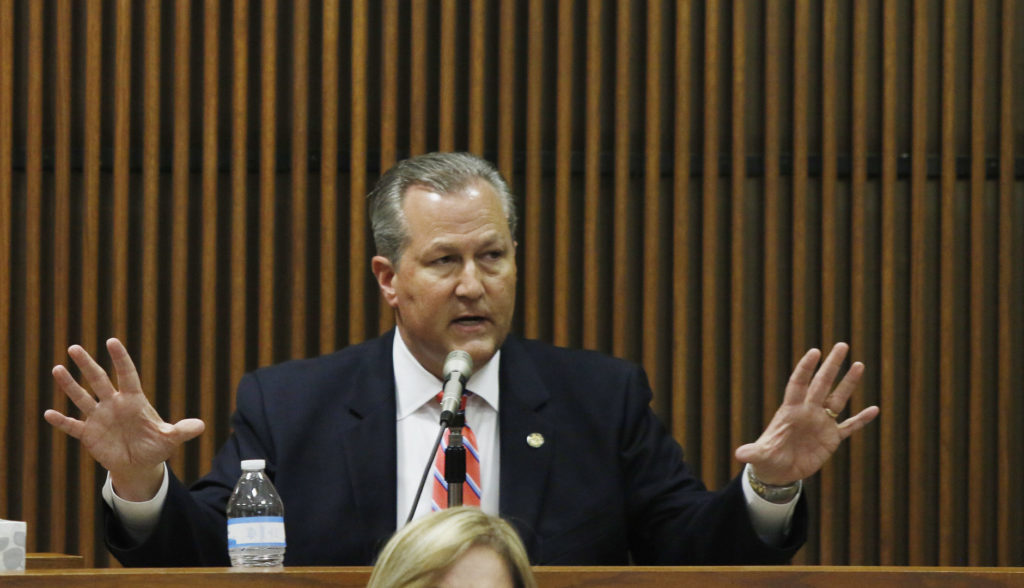
The prosecution rested its case Tuesday after two witnesses took the stand, following 10 days of testimony in the ethics trial of embattled Alabama Speaker of the House Mike Hubbard. The first witness to take the stand was former Gov. Bob Riley. Riley, Hubbard’s longtime mentor and friend, returned to the witness stand for his third day of testimony where he endeavored to paint Hubbard as a talented, rule-abiding man. Riley had been on the stand since Friday afternoon. The first thing Riley did when he took the stand was to ask Judge Walker if he could make a statement to prosecutor Matt Hart. His request was met with an immediate objection from Hart and the judge denied Riley. This interaction was the first of many tense moments between Riley and Hart throughout Tuesday’s testimony. In his hour-long testimony, Riley told the jury “Mike is also one of the most creative and innovative people I’ve ever been around.” “I have never seen anyone put as much effort to making sure everything he did had been blessed, had been reviewed,” Riley said Tuesday during cross examination by Baxley. The state’s final witness was Greg Fee, a special investigator with the Alabama Attorney General’s Office. According to Fee’s testimony, the activities for which Hubbard is charged generated a total of $2.38 million revenue for his businesses, Craftmaster Printers and Auburn Network, from March 2012 to July 2014. After Fee’s cross-examination, the state rested and the defense offered a motion to have some or all of the charges against Hubbard dropped. Judge Walker denied the motion and excused the jury until 2 p.m. When the trial resumed, the defense made a shocking move and called Hubbard to the stand as its first witness. There, in approximately 90 minutes, Hubbard testified he took precautions to obey state law with contracts his companies received and made “not a cent” from campaign work steered to his printing company. Hubbard’s testimony will resume Wednesday at 1:15 p.m. Hubbard was indicted in October 2013 on 23 felony ethics charges of using his political office for personal gain. If convicted, he faces a maximum penalty of two to 20 years imprisonment and fines of up to $30,000 for each count. He would be removed from office if convicted of any of the 23 charges. Hubbard has since maintained his innocence and continued to serve as Speaker of the Alabama House during the 2016 legislative session.
Ex-governor Bob Riley takes the stand in Mike Hubbard trial
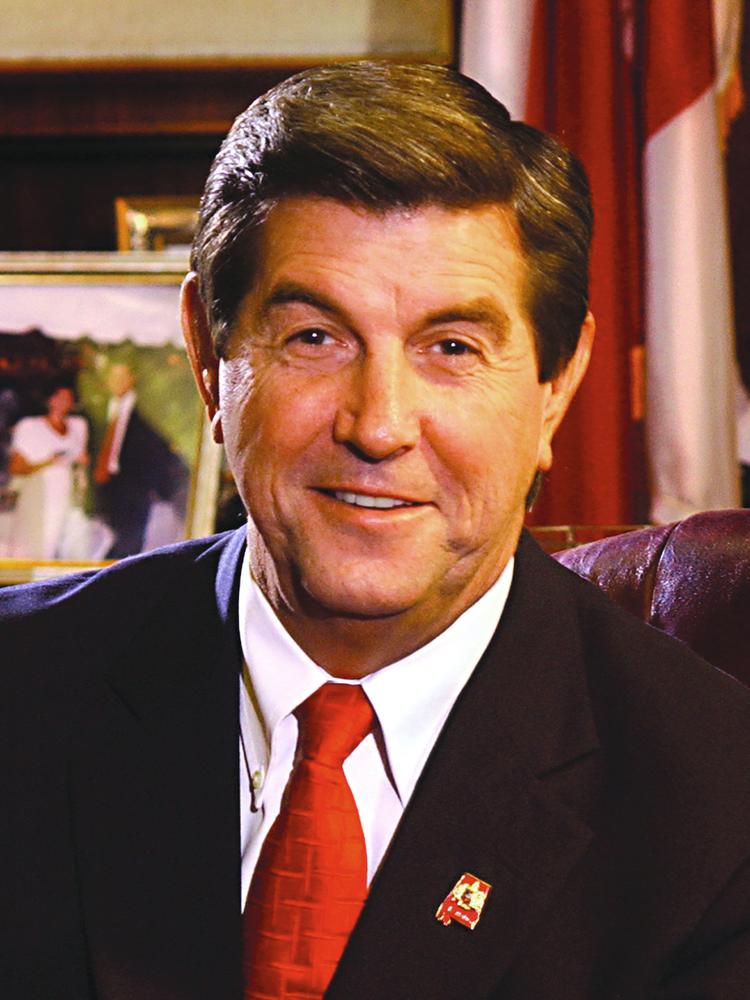
Former Alabama Gov. Bob Riley is returning for what will be his third day of testimony in the ethics trial of House Speaker Mike Hubbard. A defense lawyer on Tuesday will continue his cross-examination of the former governor. Riley, who became a lobbyist after leaving office, testified earlier in the trial that Hubbard asked to work at his lobbying firm after being laid off from his job. Hubbard faces 23 felony ethics charges accusing him of using his political positions to make money and seek financial favors, investments and employment from lobbyists and people with business before the Alabama Legislature. He is also accused of being improperly paid to lobby the governor’s office on economic development projects that could indirectly benefit his clients. Hubbard says he’s innocent and the transactions were legal. Republished with permission of The Associated Press.
Testimony resumes in Mike Hubbard ethics trial
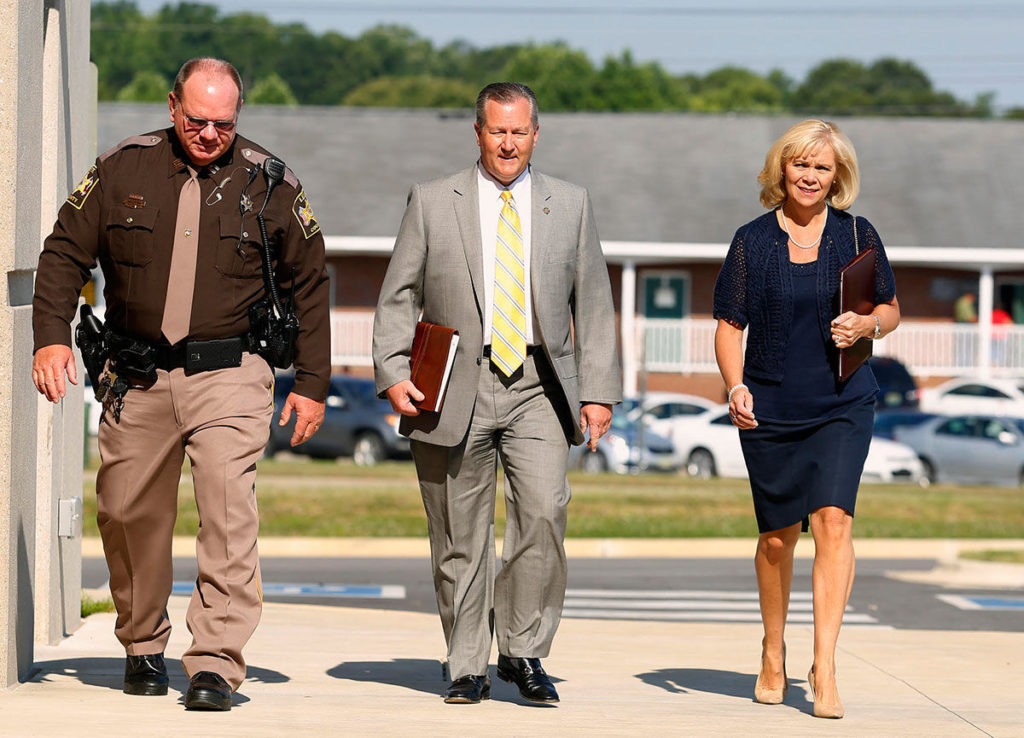
Testimony resumes Friday in the ethics trial of Alabama House Speaker Mike Hubbard. Prosecutors have accused Hubbard of using his positions as GOP party chairman and house speaker to generate $2.3 million in work and investments for his companies. Hubbard has maintained his innocence and argued the transactions were within the bounds of the state ethics law that includes exemptions for normal business dealings and longstanding friendships. Hubbard would be removed from office automatically if convicted on even one of 23 charges accusing him of using his political positions for personal financial gain. Alabama Gov. Robert Bentley testified earlier this week about meetings he had with Hubbard on economic development projects that could have indirectly benefited Hubbard’s business clients. Republished with permission of The Associated Press.
Mike Hubbard trial day 7: Hubbard’s business associates, friends take the stand
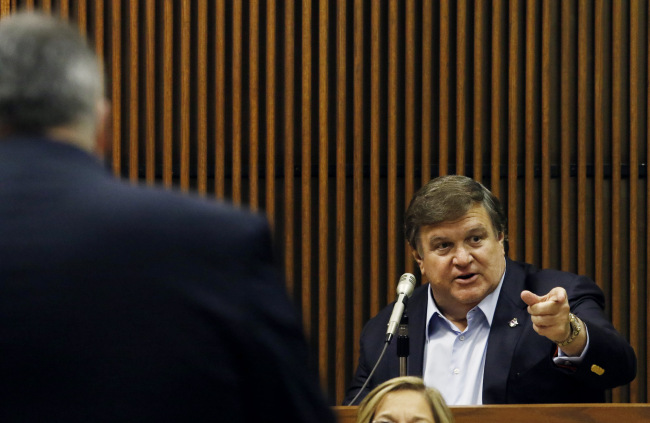
Prosecutors continued to call witnesses Thursday in an effort to prove that Alabama House Speaker Mike Hubbard used his political office for personal profit. Thursday, the jury heard from three witnesses, all of whom were Hubbard’s business associates. Some of whom testified they considered Hubbard a personal friend. Testimony began with Robert Abrams, the former president and owner of Capital Cups, one of Hubbard’s clients. Hubbard held a $10,000 a month contract with Capital Cups, and four of the 23 charges against him are based on his work with the company. Going in to business with Hubbard, Abrams said he asked the speaker if he would be able to work for the business since he served as speaker. According to Abrams testimony, Hubbard then presented him with a letter from the Alabama Ethics Commission giving him permission to work with third-party companies. Abrams went on to testify that Hubbard arranged meetings for him with Governor Robert Bentley and Secretary Greg Canfield. During the cross examination, Abrams explained he hired Hubbard because of his sports network connections, having formerly worked in sports broadcasting and for the Auburn Network, and that it had nothing to do with his political office. “Legislature had nothing to do with it,” Abrams said. “We were calling him based on his connection for sports network.” “We went to him because of the sports network connection is where I thought he might be helpful,” Abrams continued. Rob Burton, president of Hoar construction, also took the witness stand Thursday morning. Burton was one of 10 people who invested $150,000 into Hubbard’s printing company Craftmaster when it was facing financial trouble. “I invested in that because Mike Hubbard was a friend and it had nothing to do with the fact that he was speaker of the House. Even if he were not speaker, I still would have invested because I knew Mike as a friend, I like him and I trusted him,” Burton said before the jury. Last on the stand in day seven of the trial was Jimmy Rane, president of Great Southern Wood. Like Burton, Rane also invested $150,000 into Craftmaster. “I would trust him with my children and my check book,” Rane testified of Hubbard. Rane stressed his friendship with Hubbard throughout his testimony, and explained he has known Hubbard since 1984. “I would trust him with my children and my checkbook,” said Rane. Rane said he would have made the deal even if Hubbard was not speaker because “it’s a good investment.” Court recessed around noon central. Testimony will resume Friday. Hubbard was indicted in October 2013 on 23 felony ethics charges of using his political office for personal gain. If convicted, he faces a maximum penalty of two to 20 years imprisonment and fines of up to $30,000 for each count. He would be removed from office if convicted of any of the 23 charges. Hubbard has since maintained his innocence and continued to serve as Speaker of the Alabama House during the 2016 legislative session.
Mike Hubbard trial day 6: Gov. Robert Bentley takes the stand
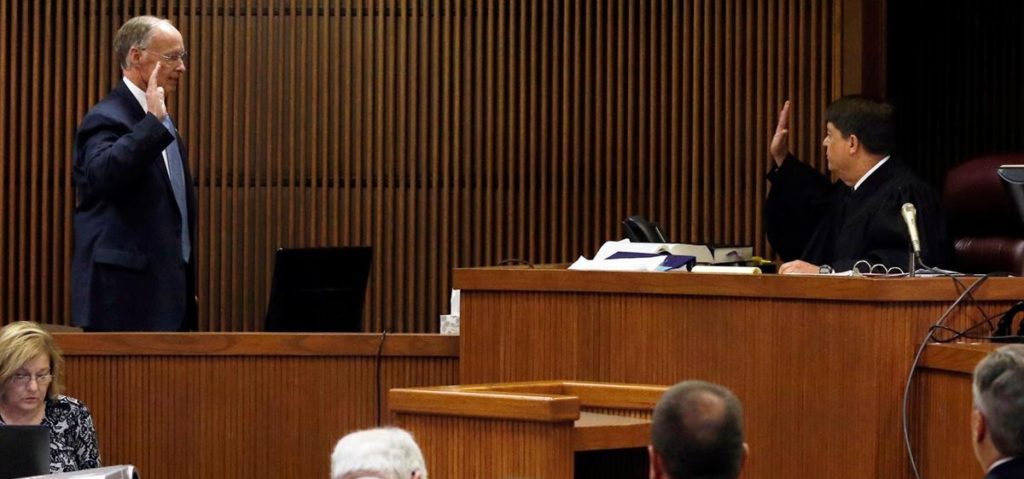
Easily the most high-profile witness to date testified Wednesday morning in the trial of indicted Alabama House Speaker Mike Hubbard. Alabama Gov. Robert Bentley took the stand at 9 a.m. to gasps and finger pointing by surprised jurors. In under 20 minutes, Bentley testified that he remembers meeting with Hubbard to discuss what he described as economic development projects. Prosecutors are seeking to prove Hubbard was being paid up to $12,000 a month to illegally lobby the governor on behalf of his business clients.. A state prosecutor showed Bentley reports Hubbard sent his clients describing how he met with the governor on projects that could benefit them. The governor testified he recalled the meetings. During the cross-examination, lead defense attorney Bill Baxley asked if it was Bentley’s opinion that Hubbard’s actions were in the best interest of Alabamians. Bentley explained that it was. And that he believed the projects were good for the Yellowhammer State because they would bring jobs. “Yes, sir. It was because it was jobs,” Bentley said before the captivated courtroom. Like Hubbard, Bentley has found himself at the center of his own scandal in recent months, having admitted making sexually charged remarks to a former female aide. Next up on the witness stand was lobbyist and long-time Hubbard acquaintance Dax Swatek. Swatek testified Hubbard asked him to invest in Craftmaster Printers, but declined as he thought it would be illegal. “I told him that it was at a minimum bad perception and my understanding of the ethics law was that he could not ask and I could not give,” Swatek testified. “To me, a there is a perception issue there. Two is that the investment idea was something that wasn’t appealing to me, but also three, the ethics law states, based on my training and understanding, that a legislator can’t ask a lobbyist for anything and a lobbyist can’t give anything back,” Swatek said, as he explained Hubbard was seeking investments from several contacts to keep his business afloat. Hubbard’s defense team argued the charges Hubbard faces for soliciting investments from lobbyists and principals, such as Swatek, are exempt due to an exception for friendship in the state’s ethics law. Will Brooke, an executive at a finance firm and former chairman of the Business Council of Alabama, took the stand next and testified Hubbard asked for his help to devise a plan to save his company. He agreed to help Hubbard and later presented him the idea to get a group of people to make $150,000 investments in exchange for preferred stock in Craftmaster to help make the company solvent, and that he himself invested $150,000. “This was a way he could support himself and be free and independent,” Brooke testified to the merits of his plan. Prosecutors argued Hubbard broke state ethics law by soliciting advice from Brooke, a board member at the Business Council of Alabama. Former state senator and Mountain Brook-Republican Steve French was next on the stand to testify that he introduced Hubbard to Sterne Agee CEO Jim Holbrook, whom Hubbard is accused of soliciting and receiving a $150,000 Craftmaster investment. French served in the state Legislature alongside Hubbard until 2010, and worked under Holbrook at Sterne Agee from 2010 to 2014. “He and Mr. Holbrook had never met and they had never talked. So he was, I guess, asking for a warm introduction,” French testified of Hubbard approaching him with the investment plan. French testified under an immunity agreement he signed with prosecutors in the Hubbard investigation. Hubbard was indicted in October 2013 on 23 felony ethics charges of using his political office for personal gain. If convicted, he faces a maximum penalty of two to 20 years imprisonment and fines of up to $30,000 for each count. He would be removed from office if convicted of any of the 23 charges. Hubbard has since maintained his innocence and continued to serve as Speaker of the Alabama House during the 2016 legislative session. Testimony will resume on Thursday.
Robert Bentley testifies in Mike Hubbard trial
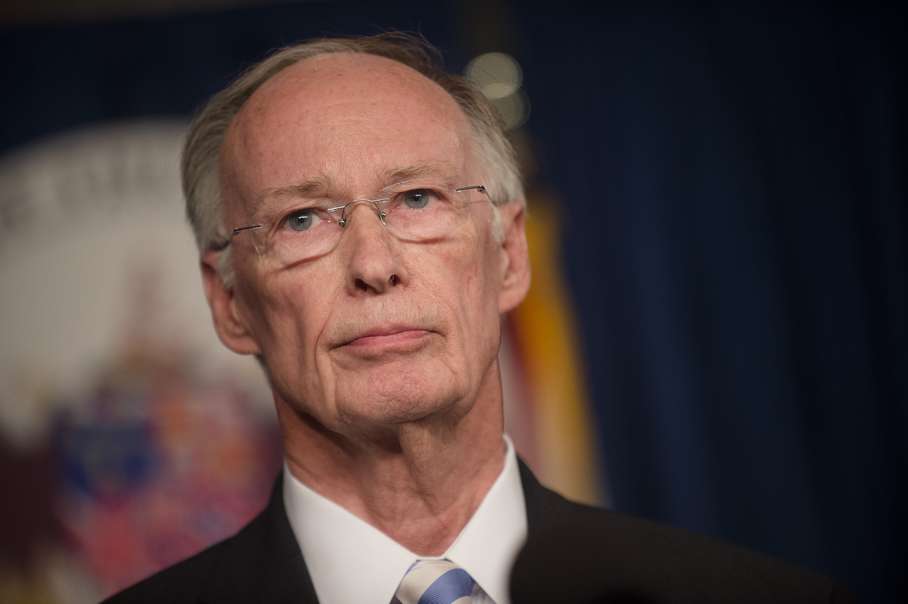
Alabama Gov. Robert Bentley testified under oath Wednesday that House Speaker Mike Hubbard met with him to discuss economic development projects that prosecutors say could have indirectly benefited one of Hubbard’s clients. That client – a municipal gas utility – was paying Hubbard $12,000 a month at the time. Alabama ethics law forbids lawmakers from taking money to lobby the governor. Bentley’s testimony provided a brief but dramatic moment in the criminal corruption trial as Alabama’s two most powerful politicians faced each other, one from the witness stand and the other from the defense table, with jurors paying close attention. The Republican governor is embroiled in his own scandal after admitting making sexually suggestive remarks to a female aide. Twenty-three House lawmakers have resolved to impeach him on charges of corruption and neglect of duty. In his 17-minute testimony, Bentley recalled meeting or working with Hubbard on efforts to recruit a trucking company and an aircraft company to southeast Alabama. Prosecutor John Gibbs showed Bentley reports that Hubbard sent to Southeast Alabama Gas Co. board members, describing how he met with Bentley and his commerce director on projects that could deliver new customers for the utility. Gibbs asked Bentley repeatedly if he believed he was meeting with Hubbard in his capacity as speaker. “I did. He is the speaker of the House,” Bentley said. The gas utility also paid for Hubbard’s attendance at the 2013 Paris Air Show, the major trade show of the aviation industry. The governor said Hubbard was invited to meetings there as part of the official state delegation. The governor offered no commentary on whether what Hubbard did was right or wrong, and the prosecutor focused his questions on facts about the meetings. On cross-examination by a defense lawyer Bill Baxley, Bentley said he thought the projects he met with Hubbard about were good for the state. “Yes sir. ‘Cause it was jobs,” Bentley said. Baxley, who has tried to emphasize Hubbard had to have a job as part of a “citizen legislature,” also had Bentley describe how he has maintained his medical practice while holding public office. Hubbard faces 23 ethics charges accusing him of using his political positions to make $2.3 million in work and investments. Hubbard has maintained his innocence and says the transactions were legal. But others – even some close Hubbard associates – have expressed concerns that Hubbard was violating the ethics law. Political consultant Dax Swatek, one of three lobbyists who had weekly meetings in the speaker’s office, testified Wednesday that he turned down Hubbard’s request for a $150,000 investment in his debt-ridden printing company. It was an “awkward” moment, he testified, but he believed that it was illegal for Hubbard to ask for the money, and for him to give it. Bentley and Hubbard were catapulted to higher office in 2010. Hubbard was elected as House speaker after helping Republicans win control of the Alabama Legislature, and Bentley leapfrogged from the House to the governor’s office after winning a longshot election. Since Hubbard’s indictment in 2014, the two have maintained a congenial tone, saying they could work together despite the expectation that Bentley would be a key witness against Hubbard. Republished with permission of The Associated Press.
Robert Bentley confirms meeting with Mike Hubbard about jobs
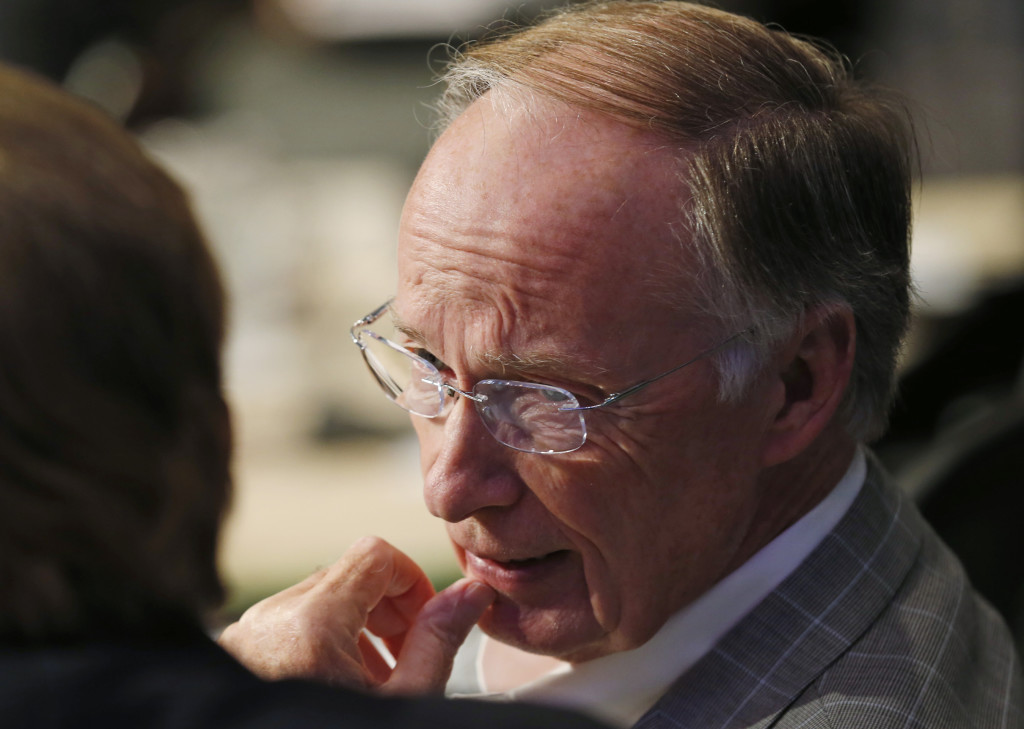
Gov. Robert Bentley has testified under oath in the ethics trial of the Alabama House speaker, saying that he remembers meeting with Mike Hubbard to discuss what he described as economic development projects. Prosecutors are seeking to prove that Hubbard was being paid up to $12,000 a month to illegally lobby the governor on behalf of his business clients – a municipal gas company and a maker of plastic cups. A state prosecutor showed Bentley reports Hubbard sent his clients describing how he met with the governor on projects that could benefit them. The governor said he remembered the meetings. On cross-examination, Bentley told a defense lawyer that he thought the projects were good for the state because they would bring jobs. Bentley faces his own trouble: Eleven lawmakers resolved to impeach him after he acknowledged sending sexually suggestive messages to a female aide. Republished with permission of The Associated Press.
Robert Bentley arrives to testify in Mike Hubbard ethics trial
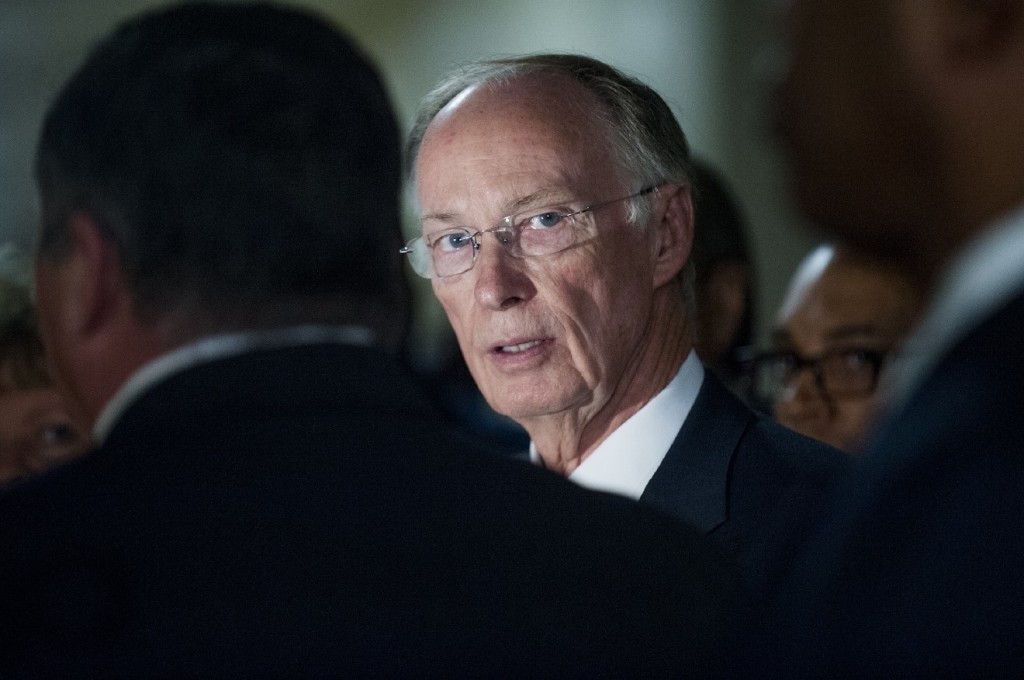
Alabama Gov. Robert Bentley has arrived at a Lee County courthouse to testify in the ethics trial of Alabama House speaker Mike Hubbard. Bentley is expected to be one of the first witnesses Wednesday morning. Prosecutors will ask Bentley about meetings with Hubbard and if Hubbard lobbied him on behalf of a business client. Alabama ethics law prohibits legislators from being paid to lobby executive branch offices. The governor was met at the courthouse by his legal adviser, personal attorney and spokeswoman. Bentley’s testimony is expected to be a dramatic moment in the corruption trial of the Republican speaker. Hubbard faces 23 ethics charges accusing him of using his political positions to make $2.3 million in work and investments. Hubbard has maintained his innocence. However, the Republican governor in recent months has been at the center of his own scandal. Bentley admitted making sexually charged remarks to a former female aide. Republished with permission of The Associated Press.


